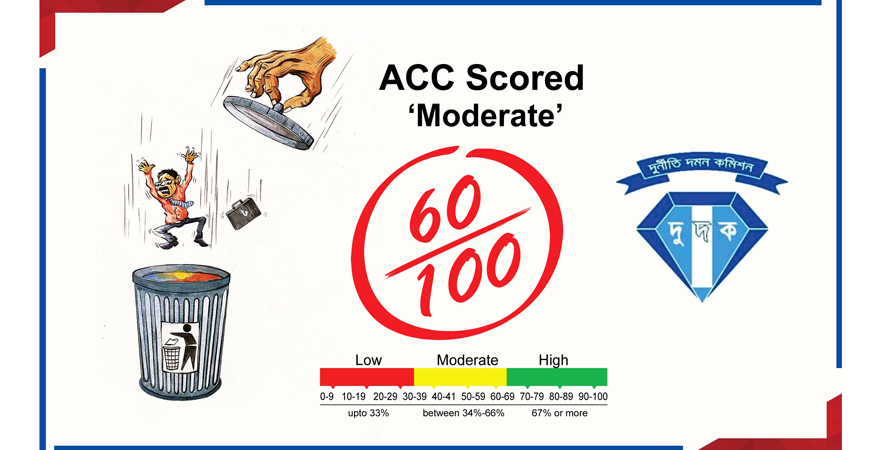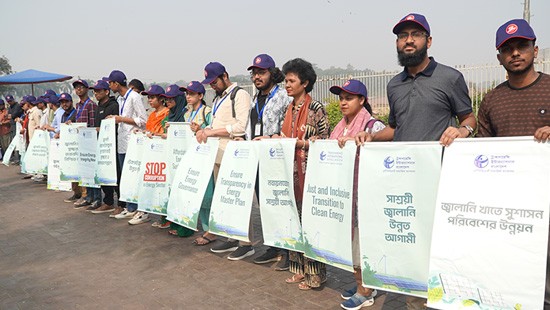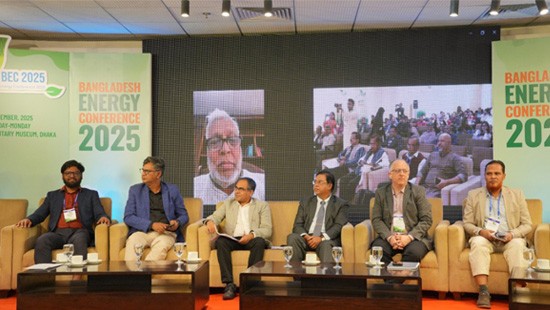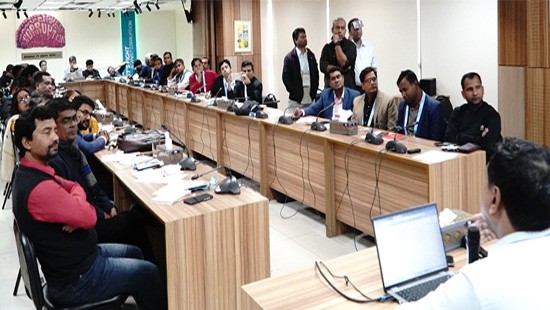Published: 25 February 2020
The Anti-Corruption Commission (ACC) Bangladesh scored 60 out of 100 in an assessment that measured the autonomous institution’s performance in tackling pervasive corruption in the country. The result puts the anti-corruption body into the "moderate" category as per the international standard. According to the assessment, the institution needs to improve by only a few indicators to graduate to the ‘high’ category as ACC’s overall score falls short of 7 points from the ‘high’ category.
Among the 50 indicators under six dimensions of the assessment tool of the study, the ACC scored ‘high’ in 42% (21), ‘moderate’ in 18 (36%), and scored ‘low’ in 11 indicators (22%). The highest score was achieved in ‘Prevention, Education and Outreach’ (75%), followed by ‘Independence and Status’ (67%) and ‘Cooperation and External Relations’ (67%). The lowest score achieved in ‘Detection, Investigation and Prosecution’ (44%).
Transparency International Bangladesh (TIB) carried out the assessment that aimed to review the performance and opportunities of ACC for improvement and offer recommendations to overcome the challenges assessing enabling and disabling factors which affect the ACC’s efficacy. The assessment, which is a follow-up study under an initiative by Transparency International (TI) aimed at strengthening anti-corruption agencies (ACAs) in the Asia Pacific Region, has been conducted in 2019 for assessing the progress made by ACC since the first assessment conducted in 2015-16.
TIB released the findings of the assessment in a press conference at its Dhaka office on 25 February where the researchers of the assessment, Shammi Laila Islam, Programme Manager, and Shahzada M Akram, Senior Programme Manager, of Research and Policy division of TIB presented the findings. Among others, Professor Dr. Perween Hasan, Chairperson, Board of Trustees; Dr Iftekharuzzaman, Executive Director; and Professor Dr. Sumaiya Khair, Adviser-Executive management, of TIB were also present at the press meet.
The assessment observes the ACC gained significant advancement in some areas, such as staff selection, accessibility to complainants/ informants, conviction rate, dissemination and campaigns, cooperation with other integrity agencies in comparison to its performance in the previous assessment. However, the ACC’s performance declined in issues like political use of powers, investigation and prosecution expertise, responsiveness to corruption complaints, efficiency and professionalism, allocated budget for prevention, education and outreach activities, public confidence in Government support. It may also be noted that the ACC scored low in several indicators, like inadequate budget compared to the national budget, lack of external oversight mechanism, as it did in the previous assessment.

In the first assessment, the overall score of ACC was 61.22%, which also fell in the moderate category. Dr Iftekharuzzaman said “In some aspects, there has been a positive change in the ACC's performance this year compared to that assessed in TIB's 2015 report. However, there is no significant change. The deficit is visible on both sides, effectively controlling corruption as per ACC’s core mandate being determined with courage and firmness in discharging responsibilities in one hand, and enabling political environment on the other. Although, noteworthy progress has been made in some areas, such as employee recruitment and promotion campaigns. However, in fundamental issues like investigation and filing cases, there is nothing to be hopeful about.”
According to the assessment, the complainants are unwilling to identify themselves, which may indicate a lack of trust or feelings of insecurity. The ACC is found weak in responding to corruption complaints. The prosecution rate is still poor compared to the complaints lodged. There is no mechanism to address the special needs of marginalized groups including the poor and women. Overall, the perception of ACC’s performance is not encouraging and reflects a lack of trust. "It is regrettable that the ACC cannot gain the people's trust, though it has liberty and seems active on paper, but inactive practically. So, the commission has to convince the people that it will prevent all forms of corruption,” Dr Iftekharuzzaman emphasized.
Appreciating the government's zero-tolerance policy against corruption, Dr Zaman said, "The people of the country desire to get the benefits of it, but an environment has been created_at to incapacitate the ACC, one of the core implementing institutions. Besides, there is a mentality within the ACC as if it were a government organization that relies on administration. Although established by the government, the kind of mentality and effort to bring the government under accountability independently is neither seen within the ACC nor within the government. Because of all this, no visible progress was seen in the cases of sensational and high-level corruption.”
To tackle the challenges, TIB placed 16-points recommendations for the empowerment of the national anti-graft watchdog. The recommendations ranged from legal amendments to increase integrity and accountability with adherence to due process through a neutral and transparent procedure in handling corruption cases and introducing a comprehensive Code of Conduct for its staff and disciplinary procedures. The assessment also suggested amending ACC Act 2004 and Money Laundering Prevention Act 2012 with increased transparency in appointment of Chairman and other Commissioners, and inclusion of money laundering and private sector corruption under ACC’s jurisdiction. Criticizing 2018 Civil Service Act, Dr Zaman said “It is based on inequality and thus unconstitutional,” he said, expressing fears that the law may curb the ACC’s powers. TIB suggested scrapping provision of taking permission from the government before arresting any public servant.
The notable recommendations, among others, are enhanced budget for staff, capacity building and training of investigators particularly in inspection, investigation, prosecution and litigation; increased responsiveness to corruption complaints with transparency on what basis the complaints are scrutinised and the explanation of why a complaint is not considered for enquiry etc. Besides, the assessment further recommended ways to strengthen prosecution and conviction rate; and excel prevention, education and outreach activities with special emphasis on addressing the special needs of different marginalised groups by ensuring for them easy access to ACC and complaint mechanisms and effective redress through affirmative action.
To ensure strengthening ACA’s, TI developed the practical and comprehensive benchmarking tool aimed at highlighting the strengths and weaknesses of Anti-Corruption Agencies (ACAs), where the indicators are divided into enabling factors and performance indicators.
For assessment details, please click here.








